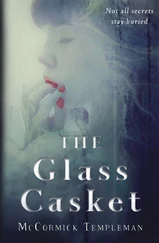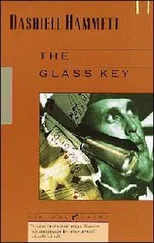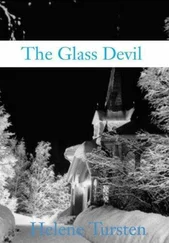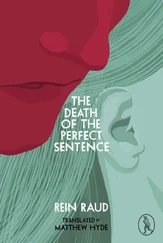And then time sped up. A violent crash pierced the air as the stone broke the surface of the ice. The walls began to shake. Then a sudden explosion, dulled by the water, struck the pyramid with full force. The lake bed had ruptured.
She cried out inadvertently.
“You must leave,” Blanca said. “Hurry!”
Sophia scooped up her pack quickly, stowing the pyramid map of the Southern Snows alongside the others. “Aren’t you coming?”
Blanca stood limply at the center of the balcony, which had begun to tremble as the nearby wall supporting it shuddered over the breaking ice. “I have no reason to,” she said. “Go.”
“Please, come with me.”
“Where would I go? I am an outcast. Many times over. I do not belong among men, because of my face. I do not belong among Lachrima, because of my memories. I do not belong to any living Age, because the world I was part of has ended. I have no place; I belong nowhere; I am nothing.”
Sophia felt tears streaming down her face, and she reached out again for Blanca’s hand. But perhaps the sight of those tears had reminded Blanca of the truth behind her own words, for a terrible cry escaped her lips: a wail, a scream that was heartbreaking beyond measure. She fell to her knees, covering her face with her hands, and her cry poured out into the air, echoing off the breaking walls and filling the hall with the sound of unspeakable grief.
Sophia could not bear it. “Good-bye,” she whispered. She ran toward the stairs to begin the long descent. The walls were collapsing around her, and she dared not stop to look at the breaking ice below. With her hand against the wall, she ran onward. And suddenly, when she touched the wall, the vision from the four maps burst into view before her. As her fingertips brushed the glass, the graven images seemed to contain more than memories; Sophia felt the throng of people around her, speaking to her urgently from within the maps. They sent their vanished makers out into the world for the last time.
As Sophia ran she heard Blanca’s cry reverberating through the hall, and she realized with astonishment that she, too, was weeping out loud, a ragged cry of anguish pulled from her throat. Her feet fell clumsily, and suddenly the stairs buckled. The top of the pyramid had collapsed, plummeting into the draining lake bed. The snowstorm raged within the hall. “Not yet, not yet!” Sophia cried, running faster. She lost her footing and slid, the stairs knocking painfully against her legs and back, but she clutched her pack and stopped herself with her feet. Whimpering aloud, she ran on.
She realized, as she rounded the last turn and saw the wall above her folding inward like a collapsing sheet of paper, that she did not know how to find her way out. She had emerged through the tunnels, and she had seen no opening above ground. Her hand still gliding against the wall, she tried to take comfort from the people around her. They were mere memories, but they had a life of their own. Were they not speaking to her? Were they not pointing urgently to a place in the pyramid wall? Sophia heard, suddenly, a pair of voices that seemed to emerge from the confusion: a man and a woman who called out to her with confidence and tender encouragement, Fly, Sophia, fly! She looked ahead and saw, with astonishment, a triangular entryway that stood intact. It was nothing but a slit in the wall. It was the way out.
But it lay several steps away. As she reached the base of the stairs, Sophia realized with horror that the floor had disintegrated. She was standing on a floating piece of ice. Stepping as quickly as she dared, she hurried across and jumped onto another piece that drifted before the entryway. She was almost there. Only a few more steps. She tipped across the ice, and as she breached the doorway with a sudden lurch the floating slab broke into pieces, leaving nothing but icy water in its wake.
Sophia ran onto the snow and looked across the wide, frozen terrain. Then a sound burst out from behind her: the sound of a thousand maps breaking at once. She turned and watched the hall collapse. The mighty walls shattered: sheets of glass crashed against one another, fragmenting into pieces. Puffs of snow and ice burst upward as the walls crumbled. It was a pile of rubble: broken maps over an empty lakebed, its waters infusing the warm soil below. And somewhere deep within lay Blanca. The air was still.
Then, with a sense of dread and expectation, Sophia turned slowly away from the ruined hall. Would she see it? Would he be there? She squinted as she looked northward. There were no storm clouds in the direction of Nochtland. The sun shone brightly over the ice. And there, far across the glacier—
Sophia’s heart hammered. There was a sudden glimmer on the white surface: a reflection of something tiny but bright—like an early star in a pale sky.
38
A Fair Wind, a Fair Hand
1891, July 2: 10-Hour #
Lachrima: From the Latin word for “tear.” Related to the vernacular, lágrima. In the Baldlands and elsewhere the term is used to describe the faceless beings that are more often heard than seen. The sound of their weeping is legendary, and it is said that to hear the cry of the Lachrima is to know the fullest extent of human grief.
—From Veressa Metl’s Glossary of Baldlandian Terms
AS THE HALL of Remembrances fell, the glaring light that had lined the glacier’s edge faded, and the slow encroachment ceased. The ice stood motionlessly on the plains outside Nochtland, and a new change began. The bright sun began to melt the glacier, releasing a shallow current, as if a block of ice were melting on a tabletop. At first, the change was imperceptible, but as the sun continued to shine on the ice, it became impossible to ignore. The waters rose over the plains in a quiet flood.
Some, at least, were well prepared. Near the high ice-cliff that formed the edge of the glacier, a magnificent boldevela with bright green sails wheeled through the water at breakneck speed. It skirted the edge of the glacier, driving onward through the water on its high wheels until the depth of the water raised the ship. The ship sailed on, its wheels propelling it through the water and the cold wind billowing through the sails. Standing at the tiller shouting orders was the polite pirate, Burton Morris. “I said a ROPE, not soap ,” Burr hollered to Peaches, who was running toward him holding a bucket and a brush.
The pirates of the Swan had, for once, succeeded in living up to their name. Traveling inland upon news of the strange weather-front moving north, they had commandeered the most magnificent boldevela they could find on the road from Veracruz and sailed it all the way to Nochtland. There they had found the entire city in disarray. It was perhaps something more than luck that drove Grandmother Pearl to insist on a southeasterly route directly toward the ominous glaciers. In the rocky hills southeast of the city near Lake Cececpan, they had come to an abrupt halt as she held her head alertly, listening.
“But how can you hear anything over this storm?” Peaches had protested.
“Hush, Peaches,” she had said. “Is there a cave nearby?” she asked, turning inquiringly toward him.
So they had sailed straight toward the dark opening of the cave that they had sighted in the hills, arriving just in time to see Burr, Calixta, and four other dirty spelunkers emerging from the tunnels. Now they were all sailing with the wind, and they raced as fast as they could toward the pyramid collapsing in a burst of white snow.
* * *
SOPHIA RAN TOWARD the faint flash of silver that moved across the ice toward her. Her boots seemed to grasp at the snow and cling to it until her feet were two massive snowballs. But she thought the figure was getting larger. She stopped to kick snow from her boots. Her breath came painfully as she leaned forward and kept running.
Читать дальше












